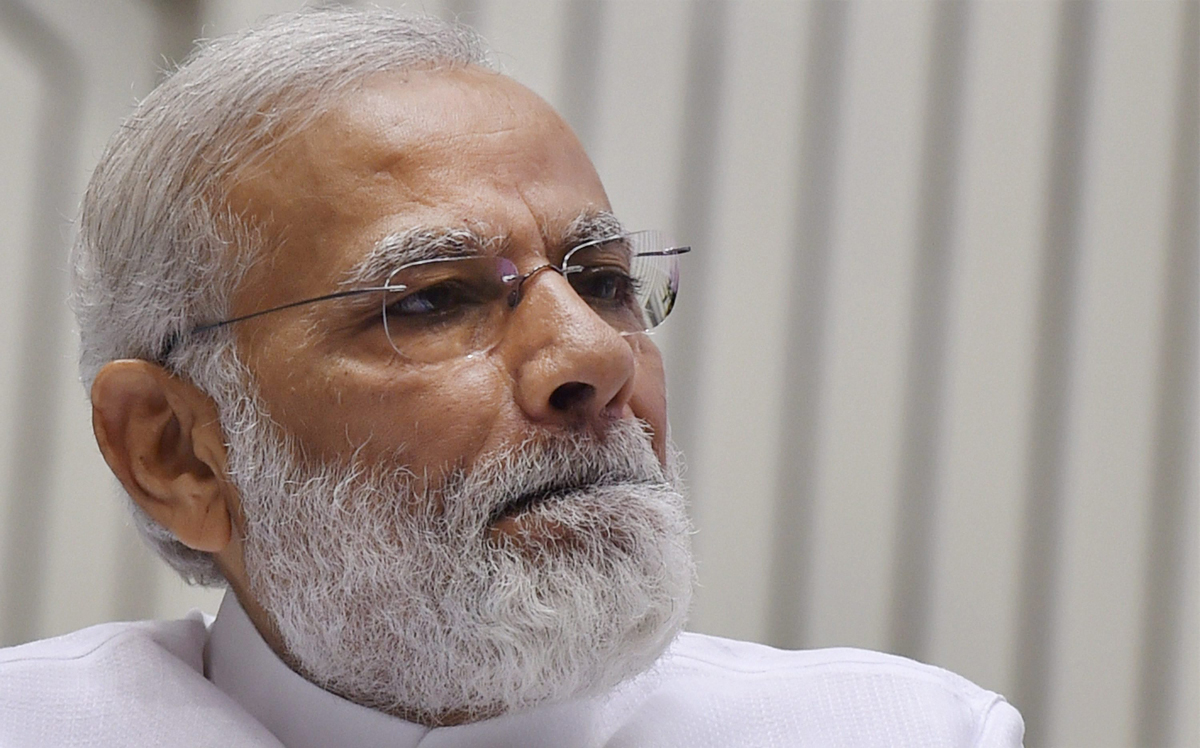When Indian Officials Refuse to Kowtow
File photo of Prime Minister Narendra Modi at the inauguration of Basava Jayanthi 2017 and Golden Jubilee Celebration of Basava Samithi, in New Delhi, April 2017. (Manvender Vashist/PTI)
The government under Prime Minister Narendra Modi has sought to implement several reform measures that have spanned the economic, political, corporate and social spheres. Successive governments have found administrative and bureaucratic changes very difficult given the resistance by the entrenched personnel that man India’s multiple official agencies, departments and public-sector units. Attempts to privatize or reform major state-owned companies such as Coal India or NTPC have been stridently opposed by both workers and management of the two companies, writes Siddharth Srivastava.
Even as the Modi government is making some moves to privatize the heavily loss making and debt-ridden Air India, over the recent weeks, New Delhi has got a taste of why it has been historically so difficult to change the way the Indian bureaucracy works. The case relates to national oil company, Oil & Natural Gas Corp (ONGC), India’s flagship explorer and biggest oil and gas producer that has been under immense pressure to improve performance.
In the absence of new discoveries, the company has been struggling to maintain production levels at declining or stagnant offshore and onshore assets, including the main producing western offshore Mumbai High fields. The ministry of oil and natural gas (MnOG) has thus proposed to privatize 11 oil and gas fields of ONGC by leasing them for 20-years to private firms whether Indian or overseas.
“The entire effort is to raise production from the mature and declining fields of (national oil companies) ONGC and Oil India Limited (OIL). Government will follow transparent and objective criteria to pick fields,” Atanu Chakraborty, chief of upstream regulator Directorate General of Hydrocarbons (DGH), that works under the MnOG, has said.
Employee Resistance
Uncharacteristic of government employees, ONGC executives have openly questioned moves to privatize the assets of the company. ONGC chairman Shashi Shanker has described the reports as “hypothetical.” “We have not officially heard from anyone on giving ONGC’s discoveries to private companies. Reports of such a move being prompted by shortcomings in ONGC’s operations are baseless,” Shanker said. “The ONGC family is leaving no stone unturned to ramp up volumes from producing fields and quickly start production from new discoveries,” he further added.
In a detailed rebuttal, the Association of Scientific & Technical Officers (ASTO) of ONGC has sought intervention of Modi to stall the sell-off plans. “Privatization alone is not a sufficient condition for augmenting output from any hydrocarbon property,” ASTO president Sanjay Goel wrote to Modi.
On the other hand, oil and gas fields of ONGC have been in production for 30-years and output has naturally shown a dip from the peak level but still accounts for the bulk of domestic output, Goel further said. He said if stagnant or flagging production is a criterion for identifying underperforming fields of ONGC, the same principle must be extended to all domestic fields.
“The production today at Reliance Industries operated KG-D6 is under 10 percent of its targeted production. For a field that is less than 10-years into its lifecycle, this is a staggering drop,” he said. Compare with consistent gas supplies from our Bassein and Satellite Assets in western offshore, where production has averaged 30 mmscmd for the 20 years, Goel argued.
PTI, meanwhile, quoted unnamed officials of ONGC to say that the government should privatize the company rather than give away its prime producing oil and gas fields to private entities “for a song and bleed the PSU to death.” Selling just 18 percent out of the government’s 68.07 percent shareholding in ONGC will fetch over Rs. 410 billion at current market price, much more than investment commitment it may get from giving away assets, they said.
The Indian government has been looking at multiple ways to attract investments, especially from overseas that has been largely lacking in India’s hydrocarbon sector, over the years. Paradigm changes were incorporated in the new Hydrocarbon Exploration & Licensing policy (HELP) announced last year in March. Despite the efforts, new and overseas investors have, however, kept away with bidders restricted to known players in the field in India. Attempts to privatize ONGC’s assets is without doubt a desperate bid by the government to entice overseas capital.
As matter stand, given the opposition from within, it is unlikely that selling ONGCs assets will materialize as New Delhi will be averse to upset employees of a large state corporation such as ONGC as it has been with other majors Coal India or NTPC in the past. The message, however, will be not be lost to the rank and file of ONGC that the company needs to deliver more. The government will also need to introspect why foreign majors continue to shy away from India.
There is perhaps still room for further reforms in India’s hydrocarbon sector including diluting ad hoc bureaucratic intrusiveness in the domain of marketing and pricing flexibility that companies seek before committing capital over the long term.


